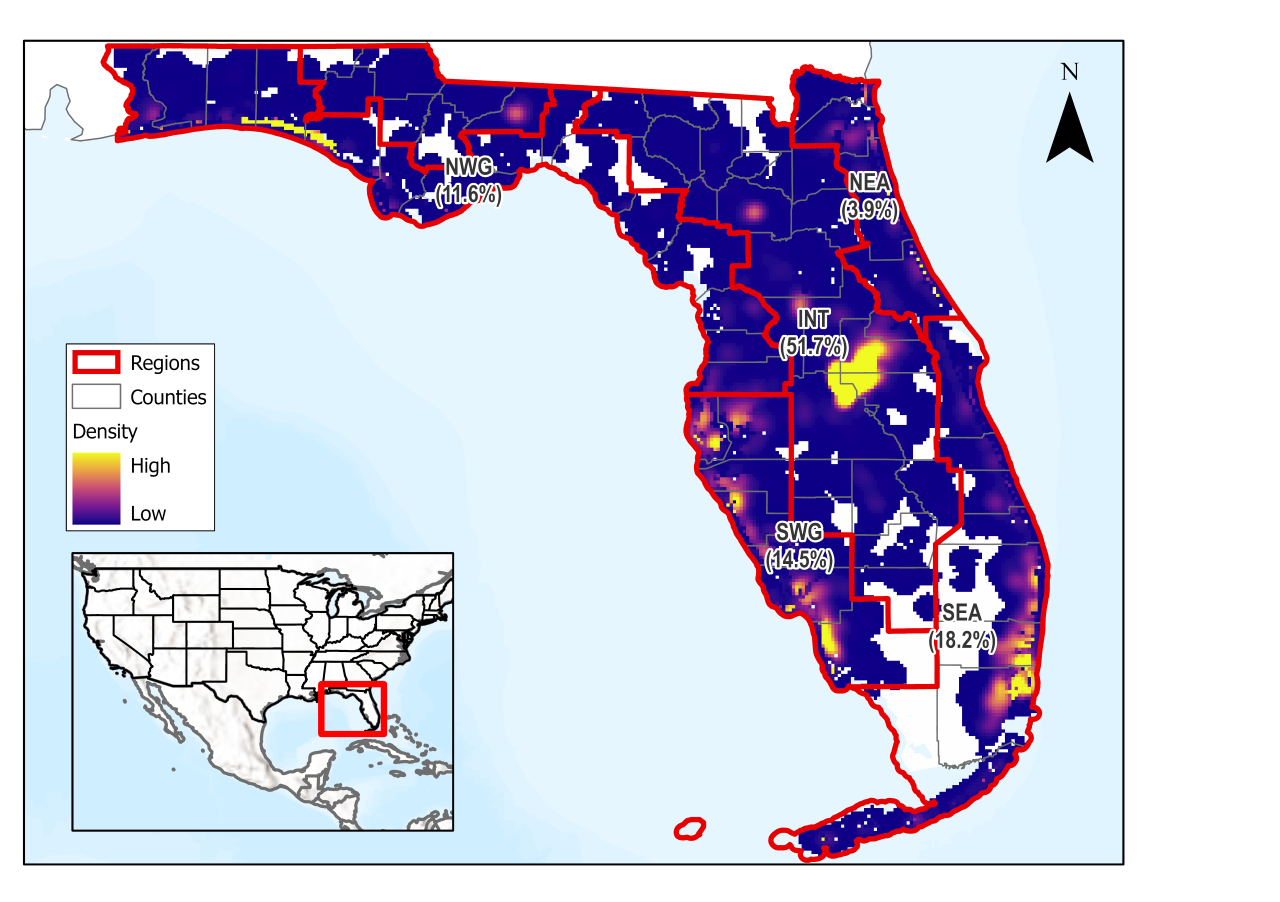
GeoGator Gabriel Cardoso Carrero and collaborators presented their paper 2018 Red Tide and peer-to-peer accommodations: assessing the economic impacts using a multi-regional input-output model at the 60th Meeting of the Southern Regional Science Association. The Regional Research Institute at West Virginia University presented The William H. Miernyk Research Excellence Medal to lead author Dr. Joao-Pedro Ferreira.
The presenter described the paper as “As an excellent example of disaster and hazard research, this paper focuses on the Red Tide event that began in October of 2017 and ended in January of 2019. The event limited access to marine and coastal recreational activities along the Gulf Coast of Florida and heavily impacted tourism demand for this area. The authors use microdata on Airbnb properties and water sample records from the Fish and Wildlife Research Institute and combine econometric methods and multi-regional input-output techniques to estimate the effects of this harmful algal bloom on the peer-to-peer accommodation market.”
Abstract:
Disaster or hazard events can significantly reduce the attractiveness of a place and reduce tourism demand. The Red Tide event that began in October of 2017 and ended in January of 2019 limited access to marine and coastal recreational activities along the Gulf Coast of Florida and heavily impacted tourism demand for this area. Using microdata on Airbnb properties and water sample records from the Fish and Wildlife Research Institute, this work combines econometric methods and multi-regional input-output techniques to estimate the effects of this harmful algal bloom on the peer-to-peer accommodation market. We conclude that for each test detecting a significant concentration of the organism that causes the Red Tide events, the average price and the number of reservation days in Airbnb properties both decline. These declines represented a direct loss of approximately $70 million in the Airbnb market in Florida for 2018. In addition, many other activities are indirectly affected as tourist revenues decline. A multi-regional input-output model for Florida is employed to analyze the interdependencies between the tourism sectors and the broader regional economy. After combining micro- and macro-level modeling, our work concludes that the total economic impacts of the 2018 Red Tide event observed via the Airbnb market correspond to declines of $317 million in sales revenues, $197 in Gross Value Added and nearly 3,000 jobs. Due to interregional spillovers, 81% of the impacts on sales were felt in the Southwest Gulf Area and 19% in the rest of Florida.